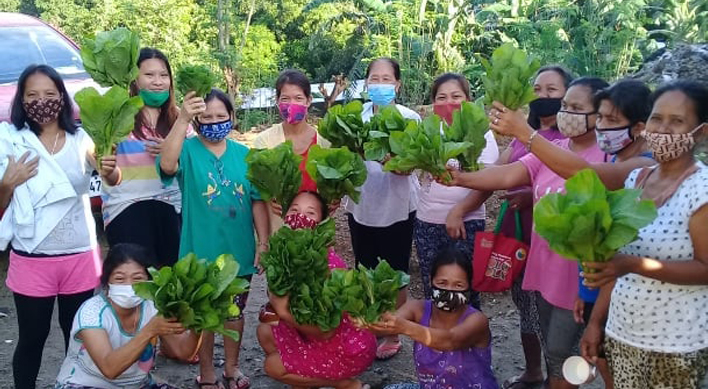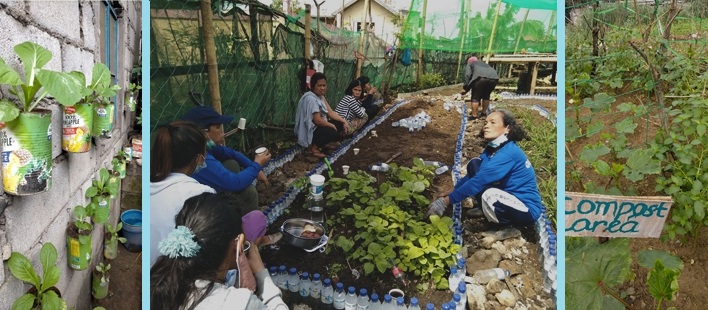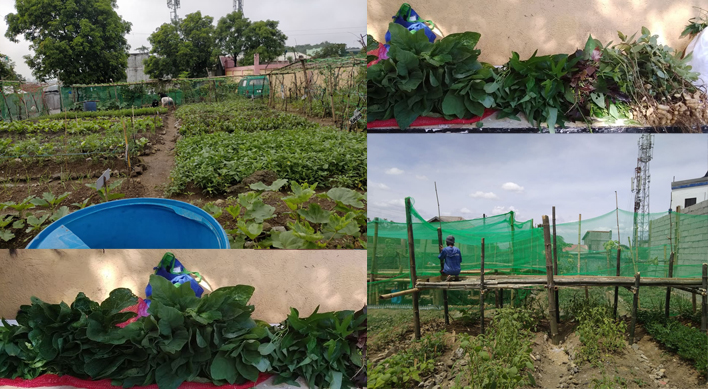COMMUNITY PANTRIES AND URBAN FARMING
Ina ng Lupang Pangako Parish of Payatas has been into food distribution—now called "community pantries"—since the first lockdown in March 2020. Fifty BEC women-leaders and volunteers meet each week (despite the prohibitions of ECQ) to facilitate the program for more than one year now. They have community kitchens, cook the food themselves, distribute them to the most vulnerable. Donations—in cash or in kind—come from outside and inside the community, be it rice, vegetables, camote, fish or what have you. Anything that comes from a kind heart is welcome.

Whatever goods that come, they found an efficient way to distribute them following health protocols and all — a product of one year of thinking through what is the best way to help in these difficult times. The women's local knowledges and their emotional networks in these communities help in the effective distribution of goods during the pandemic. The peculiar list of the beneficiaries of the area under their care—with just "first names" on it—shows how personal and familiar they are to each other. The BEC leader knows who are sick, who have no work, who have PWDS, who needs most at this moment. The system which they revise and adjust every time after some evaluation is a stinging critique to the impersonal and cruel government "ayuda" distribution process which is without "malasakit" and disrespectful of persons.
But after some months, these same women-leaders soon realized that these efforts—even if they helped for sometime—are not really sustainable in the long run. Goods are not there forever. Donors are also exhausted; and their resources, too. Yet our needs are endless. There should be a way out, they thought.

After one meeting, they decided on urban farming. From September 2020 until today, they fight hunger through planting the vegetables that they need. There are now 14 urban gardens managed by the same women-leaders themselves.
They have little space but they thought it is possible. On their land on which we dump our (and the whole of Manila's) waste; ironically, on the meager spaces in between garbage, these brave women plant the food that they need hoping that life would be more sustainable, or at least, less painful and more bearable.

From their produce, they now have something for their family tables, and for their community pantries. The rice distribution for vulnerable PWDs still continues. The feeding program still goes on. And now they have additional vegetables and crops for distribution to those in need.
Someone asked in their group chat: "Anong ginagawa n'yo sa kapit-bahay na palagi na lang humihingi ng gulay sa kadahilanang wala daw siyang pambili?" Another answered: "Binibigyan namin; at binibigyan din ng buto at tinuruang magtanim."
Watch this video of their story: "Fighting Hunger in Payatas" —
Daniel Franklin Pilario, CM
St. Vincent School of Theology
Adamson University
danielfranklinpilario@yahoo.com
04.21.2021


